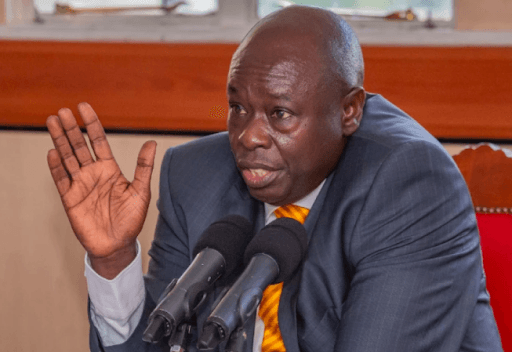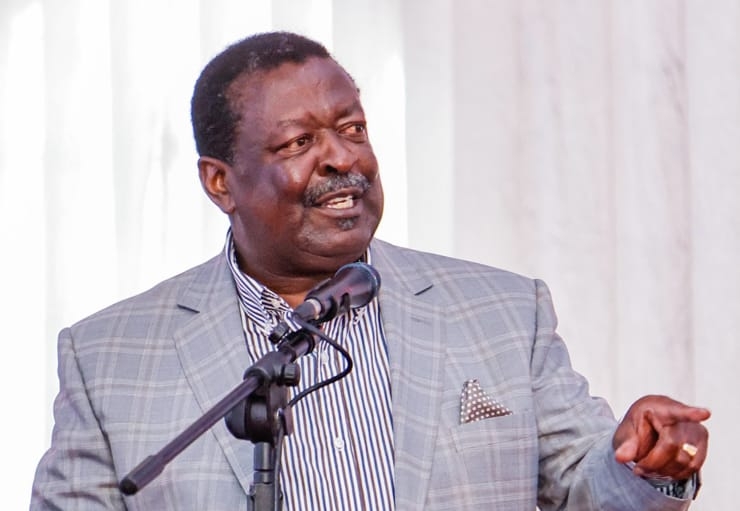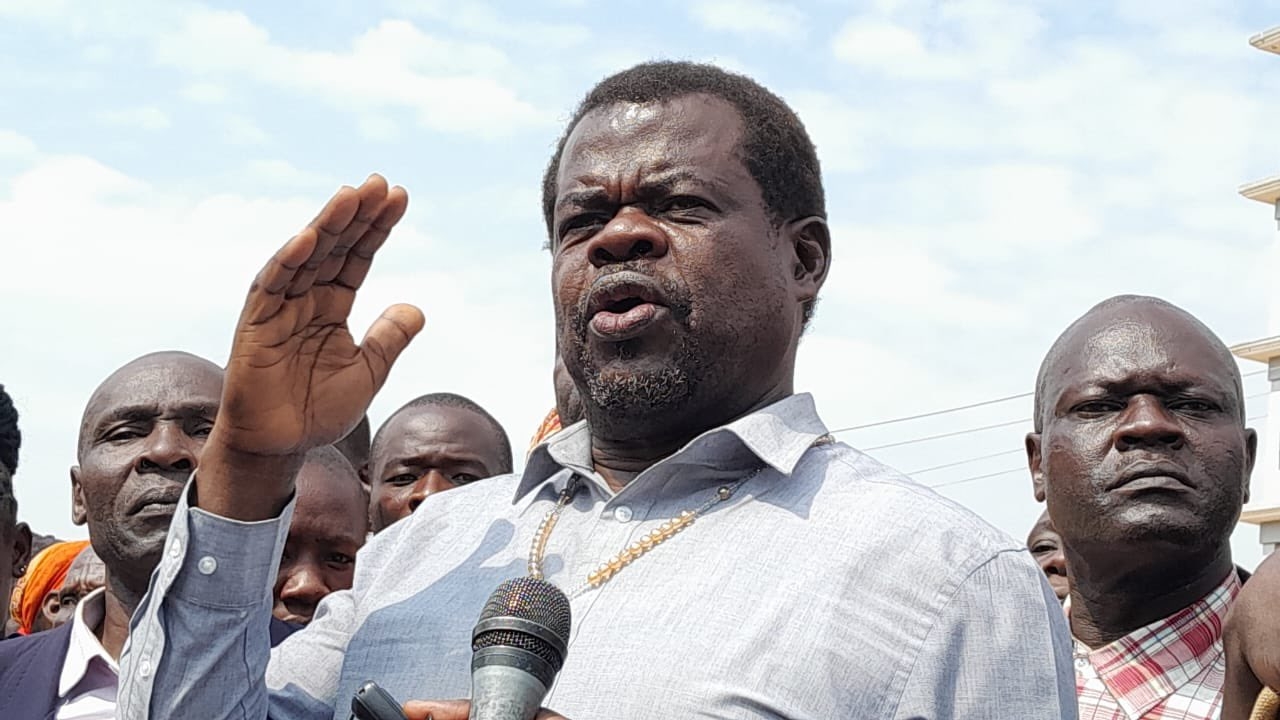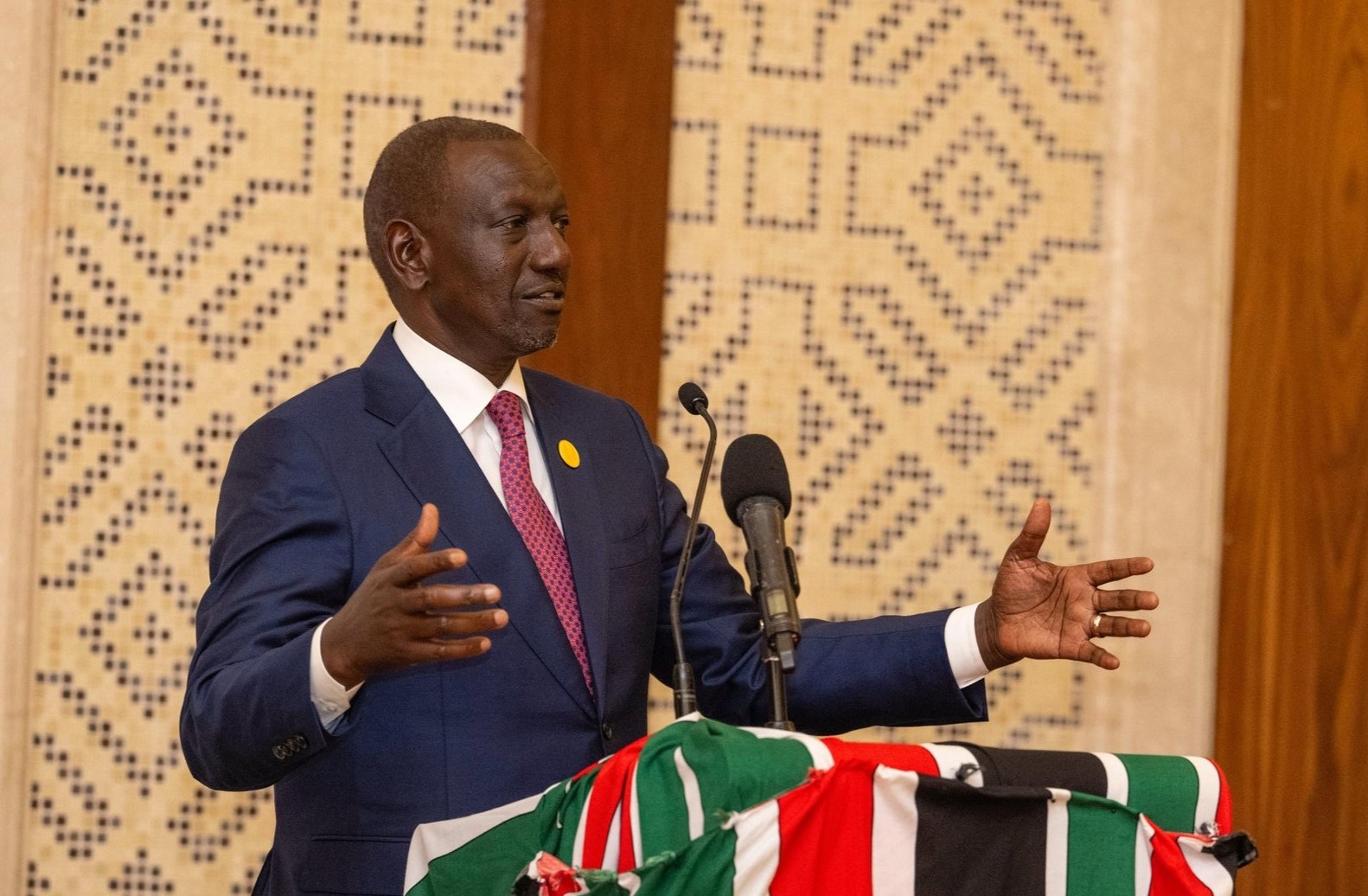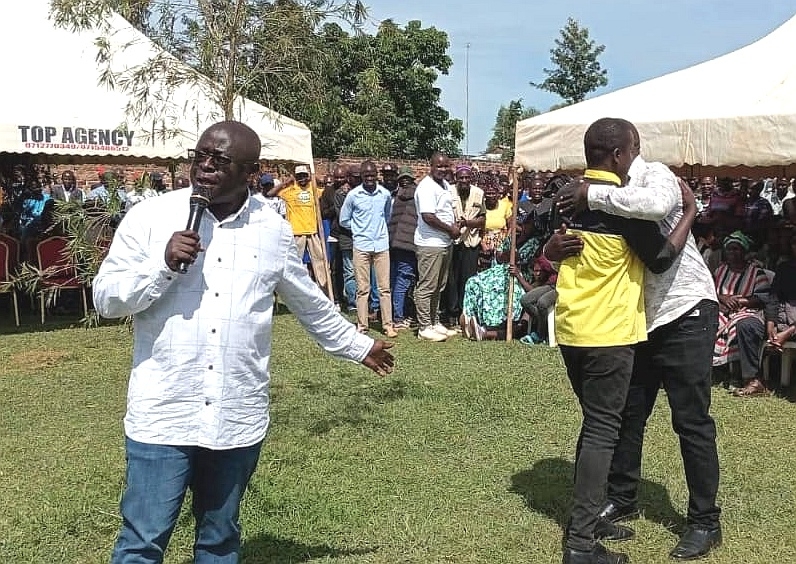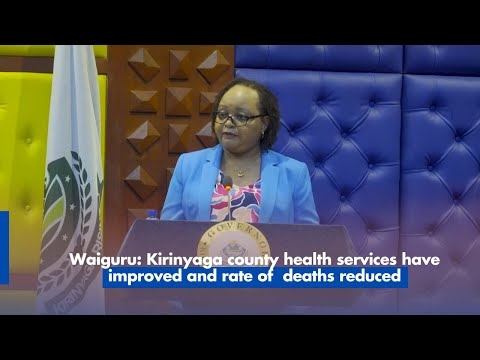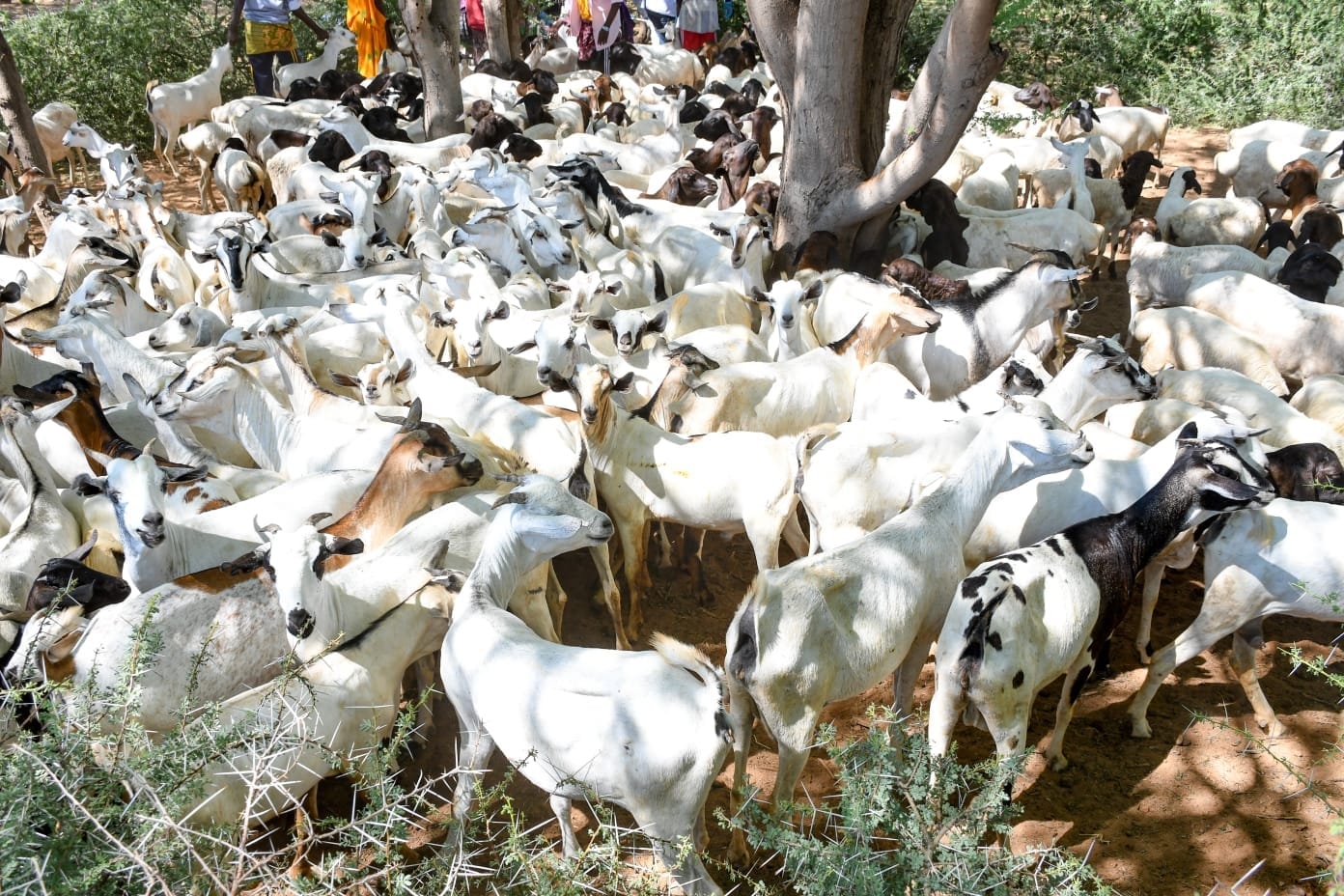
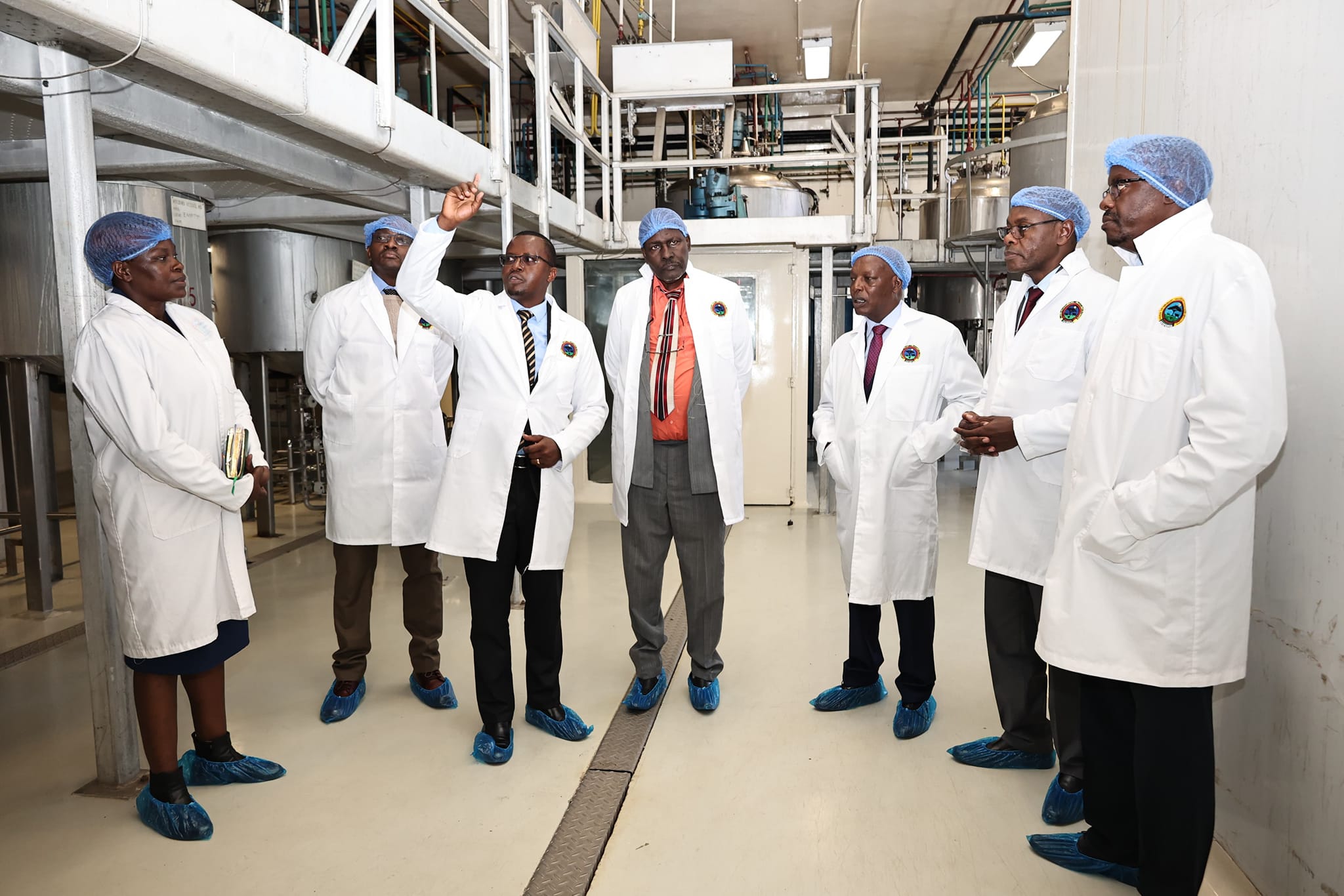
Livestock farmers across the country have been urged to embrace regular vaccination, which will protect them from losses occasioned by the death of their livestock during disease outbreaks.
The Director of Veterinary Services (DVS) Dr Allan Azegele called on farmers who are not willing to have the government vaccination to undertake their own private vaccination and share the details so that it can be recorded in the database.
Azegele speaking during a media tour of the Kenya Veterinary Vaccines Production Institute (KEVEVAPI) facility at Industrial area, said that they will not force farmers to have their livestock vaccinated as he advised against not vaccinating.
“If farmers decline to vaccinate their animals and there is a disease outbreak, they will be at a loss because their animals will either die or there will be quarantine in the area and therefore, they cannot sell their livestock and it is therefore beneficial for them to have their livestock vaccinated,” he explained.
The DVS highlighted that the government has identified two transboundary diseases that is the Foot and Mouth Disease (FMD) for cattle and Peste des Petits Ruminants (PPR) for sheep and goat where FMD will be focused on the dairy producing regions and PPR will focus on the Arid and Semi-Arid Lands (ASAL’s).
He highlighted that for PPR one dose is enough for a lifetime, while the Foot and Mouth vaccination will be done twice a year because the current vaccine that they are using offers immunity for about six months.
“Our strategy is based on the stepwise approach which is a progressive control pathway where we are at stage two of five, and to move from the second to the third stage requires aggressive vaccination across the country and that is why we are conducting the nationwide vaccination,” he explained.
Azegele said that once the vaccinations are successfully undertaken, they will be able to seek freedom from disease status from the World Organization for Animal Health (WOAH) and Kenya’s livestock will have access to the world market.
“So far through mobilization with partners we have been able to vaccinate livestock in Kitui where 700,000 doses were deployed, Wajir where 800,000 doses of PPR were distributed as well as Embu and Tharaka Nithi counties,” Azegele said.
The DVS said that they are working with KEVEVAPI on the vaccines production schedule so that they vaccines are produced as they progressively rollout the exercise.
Azegele said that Kenya has a livestock population of about 22 million cattle, 23 million sheep, 35 million goats and 4.3 million camels and the aim of the government through the Bottom-Up Economic Transformation Agenda (BETA) is to grow the Gross Domestic Product (GDP) contribution of livestock from 12 to 20 percent.
“To achieve this, we have to increase the productivity of our animals and therefore we have embarked on improving the three anchor value chains that is meat, dairy and leather,” he said.
He explained that in the dairy sector they target to double the annual milk production from the current five billion liters to 10 billion liters, while for the leather value chain they hope to increase its value from the current Sh15 billion to Sh130 billion.
Azegele said that one of the most important enablers is animal health, where they target to provide animal feeds and proper breeds that are resilient and are big enough to produce good meat and leather.
Kenya Veterinary Vaccines Production Institute (KEVEVAPI) chairman Prof. Kimathi Kigatiira said that vaccine production in Kenya started in 1964 through Welcome Kenya Limited and in 1990 KEVEVAPI was established through a legal notice 223 and it became independent.
He said that the vaccines produced in Kenya have been proved effective because they have to undergo all the quality standards that are required.
“The vaccines are also taken to the Africa Union Pan Veterinary Vaccine Centre (AU-PANVAC) in Ethiopia for quality checks,” Kigatiira said, adding that Uganda recently had an outbreak and they came to Kenya for the vaccines.
KEVEVAPI Managing Director (MD) Alex Sabuni said that they have the capacity for mass production of vaccines explaining that they have been under producing for the last 10 years, where they have been operating at 50 percent capacity due to the lack of demand.
According to Sabuni they have more than three million doses that are ready for rollout as he called on Kenyans to embrace the vaccines.
“We have upgraded our equipment over time and we are doing end to end production and we don’t have any external influence.I would like to urge our farmers to embrace the vaccines since it is the same ones they have been using for their individual vaccination and county-led ones,” Sabuni said.


